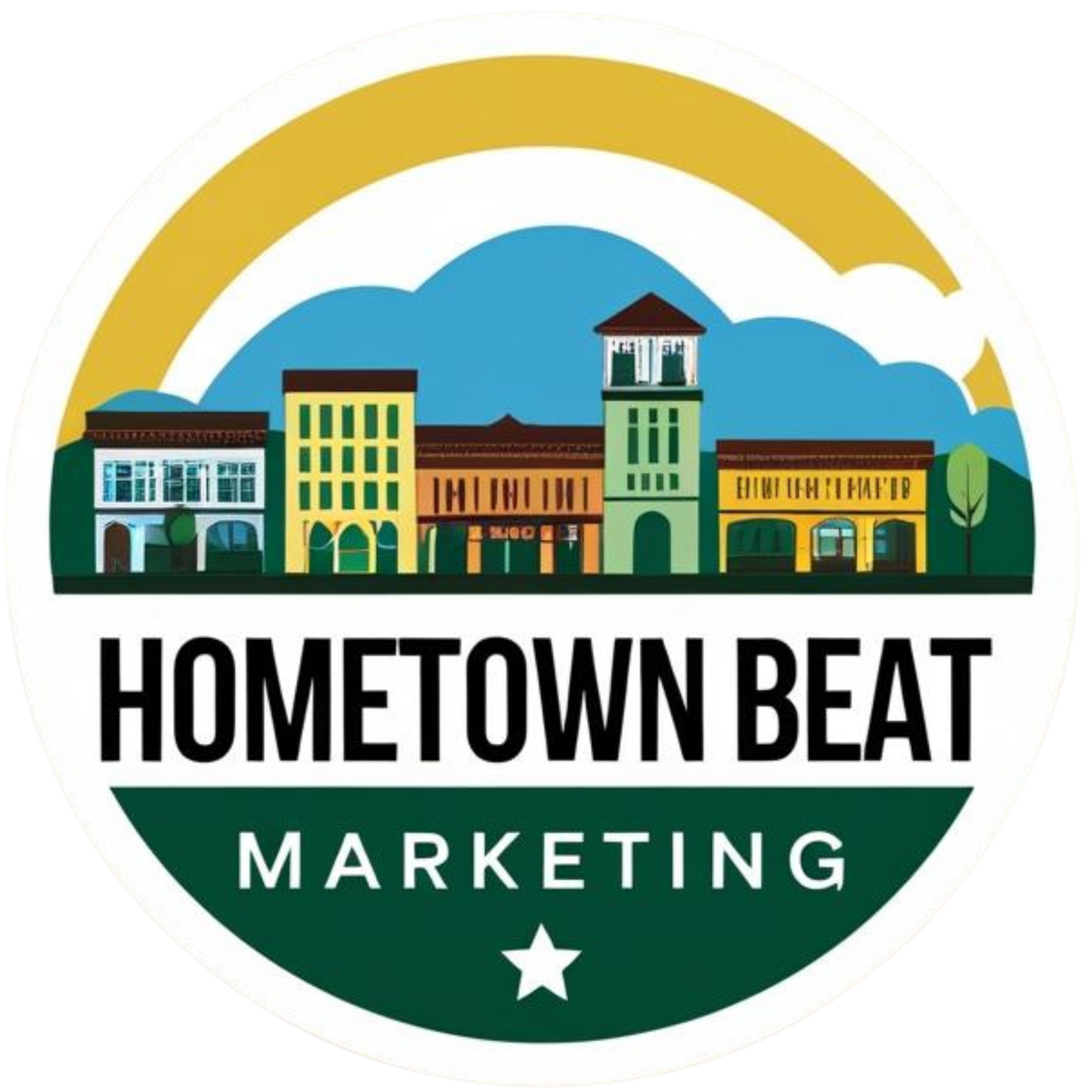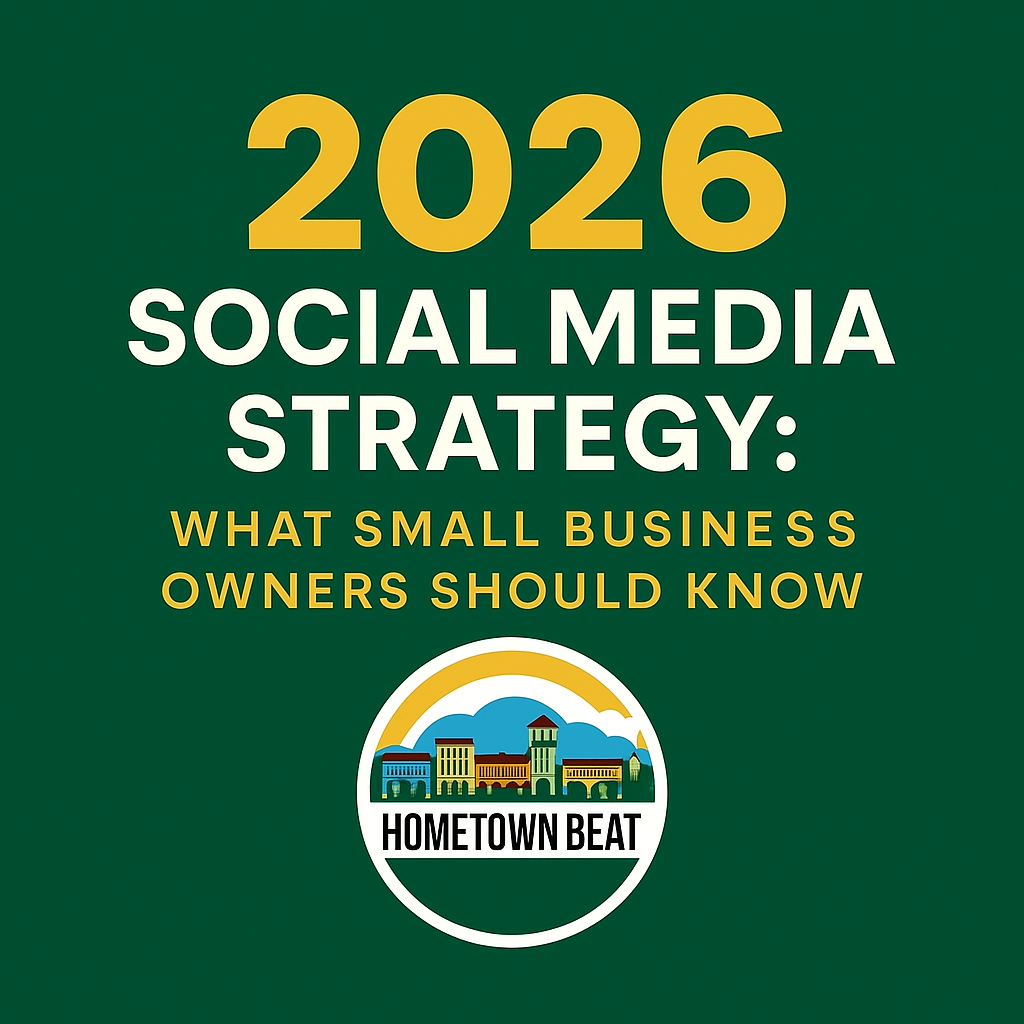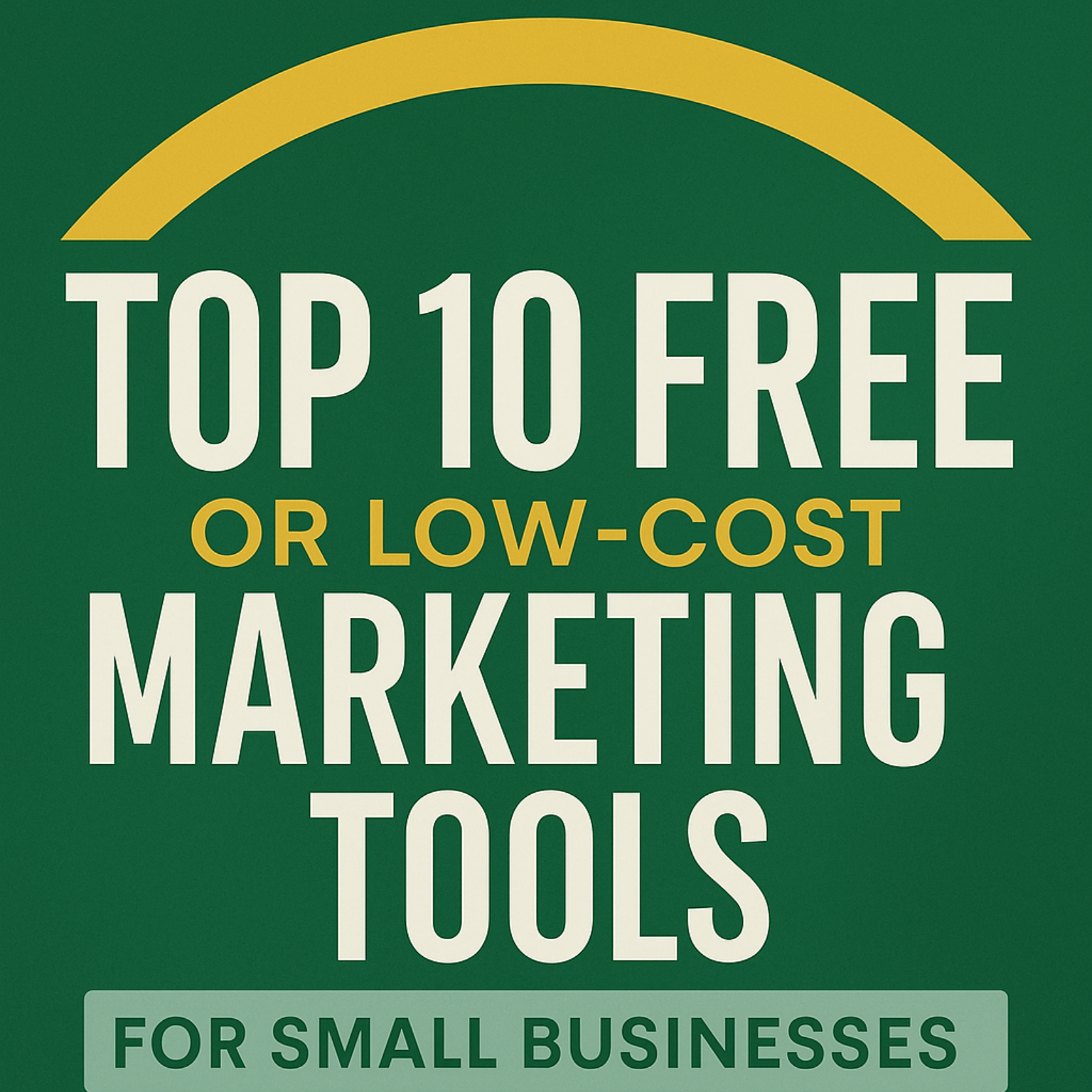15 AI tools you should use for SEO


AI can significantly streamline SEO tasks, freeing time to focus on high-impact strategies.
However, with new AI tools constantly emerging, it can be overwhelming to know which ones truly enhance productivity and which may complicate things.
From generating unique images to optimizing content, AI platforms like Grok, ChatGPT and Midjourney offer endless possibilities.
Below, I’ll share 15 AI tools I’ve used for SEO, each of which has delivered great results.
While many alternatives are available, these tools are a strong starting point for exploring and refining your SEO approach.
15 AI tools you should use for SEO
1. Alli AI
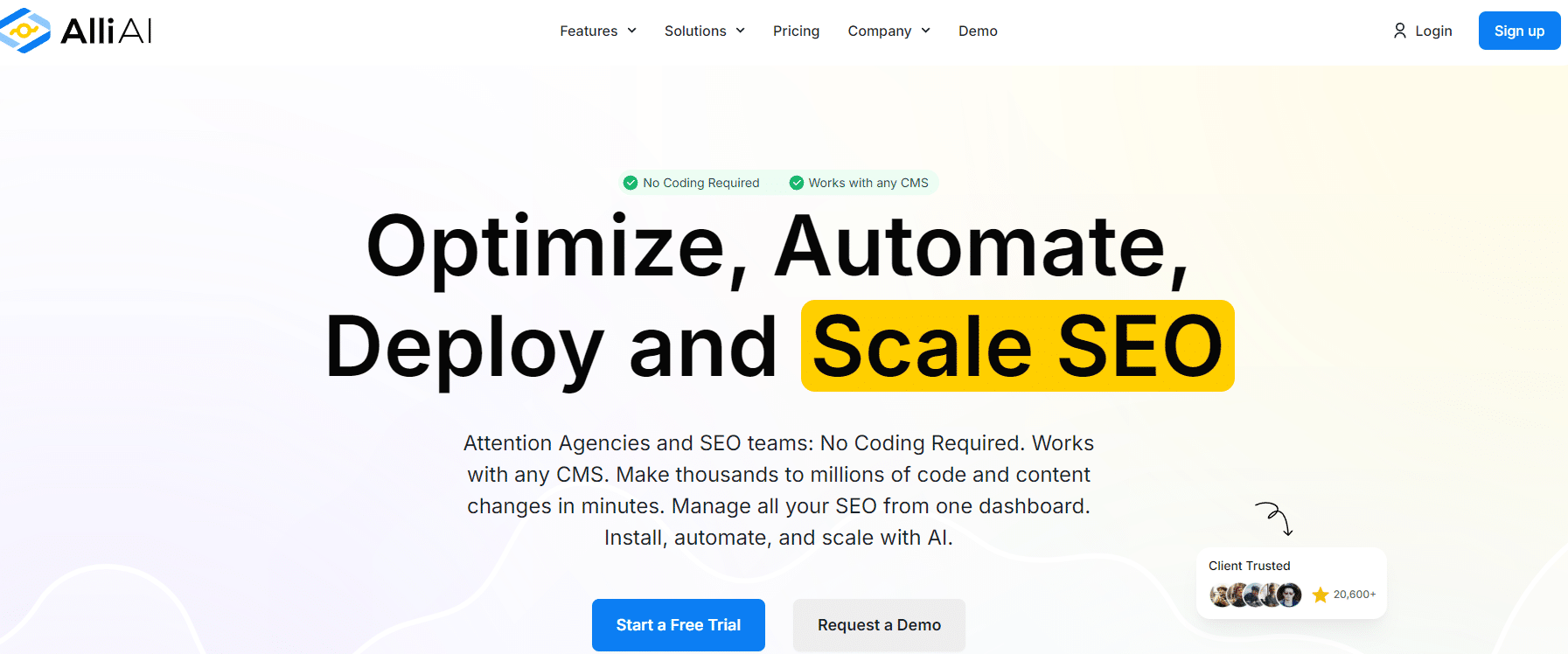
Alli AI works with any CMS, bypassing technical limitations to use AI to help automate on-page SEO for:
- Links missing titles.
- Missing image alt and title text.
- External link targets.
- Site speed optimization.
- Content recommendations.
The tool analyzes your site and gives you a step-by-step guide that explains how to optimize it for better results.
I wouldn’t recommend blindly following every recommendation, but you can commit thousands of recommendations in a single click, which saves you countless hours of manual work.
2. RankIQ
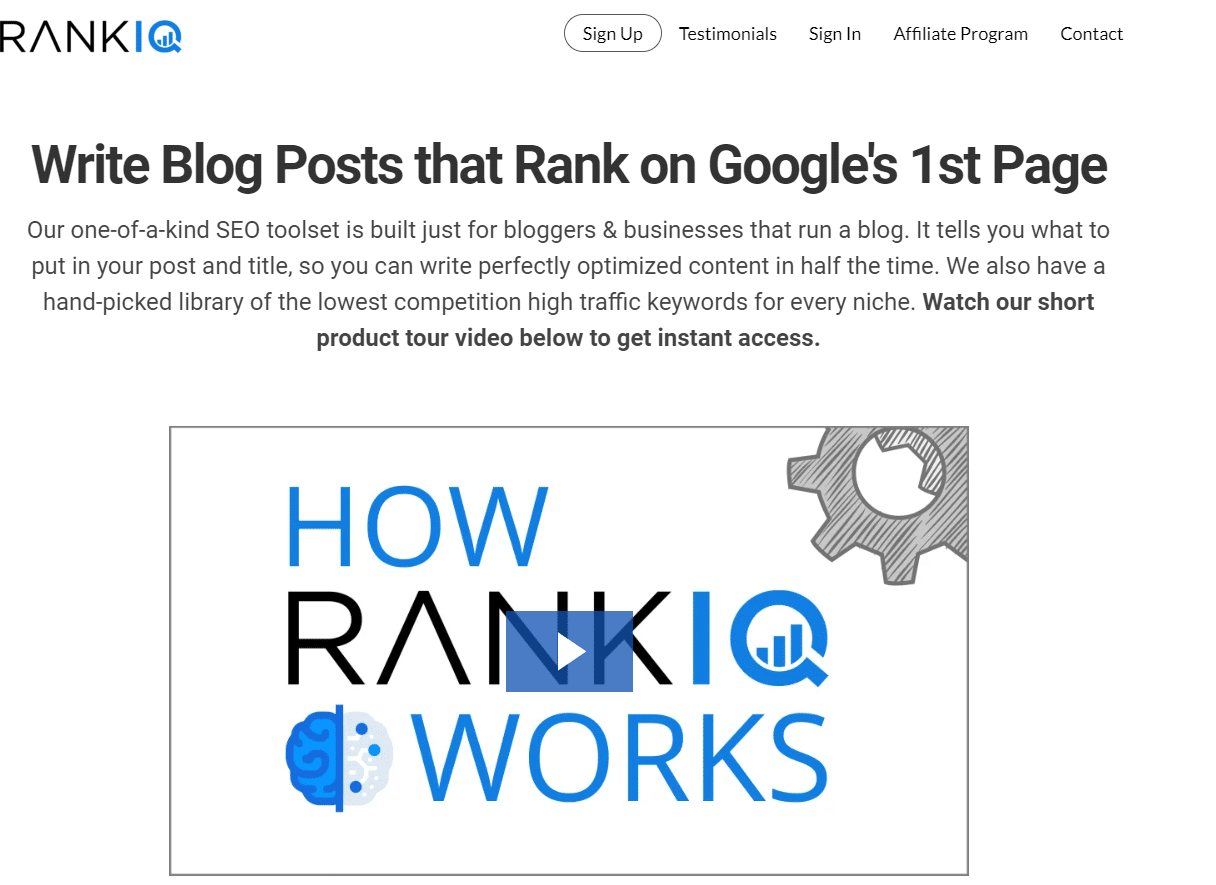
RankIQ is a super-charged content optimizer that helps you analyze thousands of factors across blog posts to learn:
- Suggested word count.
- Topics to cover.
- Keywords to include.
There’s even a title recommendation engine that will help you write more impactful titles.
If you need to find low-competition keywords, optimize posts or write new ones, RankIQ is a must-have option in your AI toolbox.
Dig deeper: AI content creation: A beginner’s guide
3. Surfer
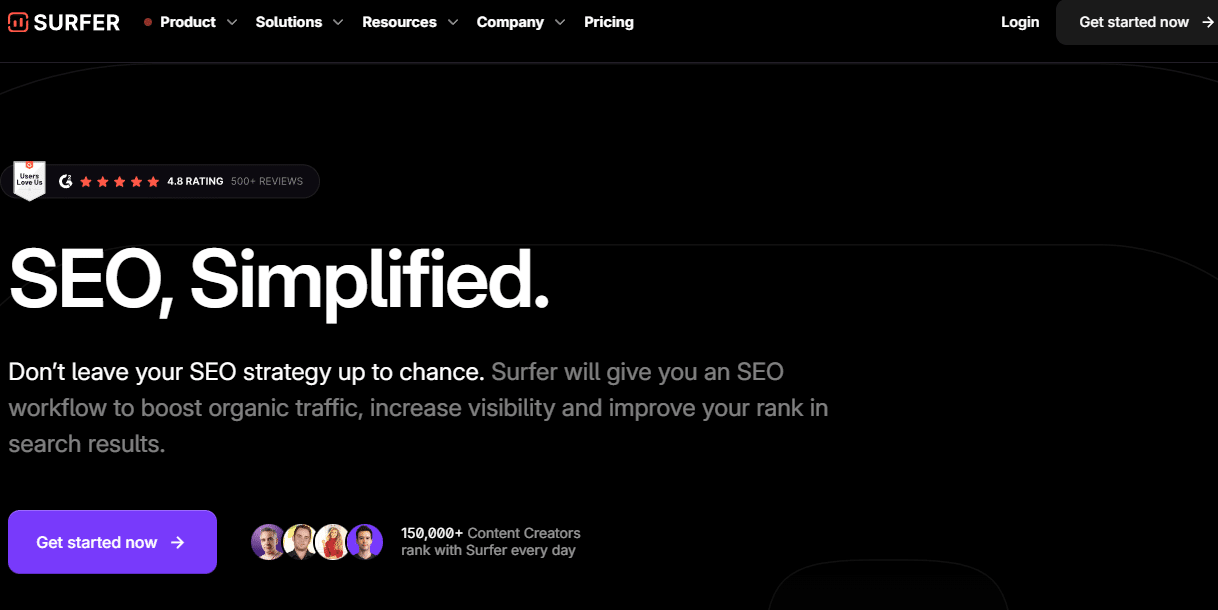
Surfer isn’t new, but it continues to add to its tool that powers 150,000 content creators and agencies. You start with a keyword research engine and will gain access to:
- Content guidelines.
- Keywords and headers to include.
- NLP suggestions.
- Outlining and brief options.
A recent feature lets you auto-optimize posts and insert internal links on autopilot.
With Surfy, the writing assistant, you can have the platform rephrase the content, edit it and refine it while writing.
If your site needs content updates, Surfer can help you boost organic traffic.
4. NeuralText
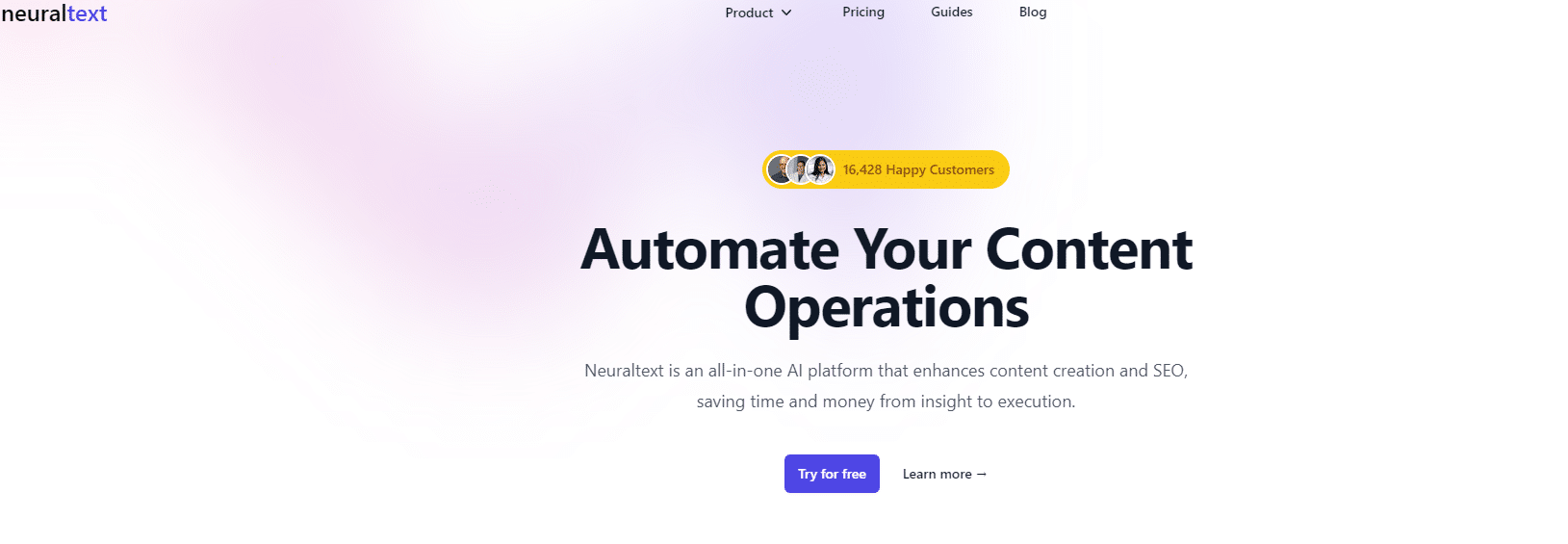
NeuralText is a lot like Surfer, with score and word count suggestions and it’s designed to enhance your content creation.
You’ll gain access to tools used by some of the largest brands in the world, including:
- Keyword clustering.
- Live SERP analysis.
- AI writing assistant.
- Search console integration.
Research and keyword analysis alone are two reasons to use Neuraltext to help you refine blog posts and create content briefs that you can pass off to your content team.
If you’re focusing on content to drive organic traffic to your site, you can’t go wrong with Neuraltext.
5. MarketMuse

MarketMuse is a tool that I relied on heavily a few years ago when creating content, and it was always one step ahead of the competition.
You can create brief templates, conduct research, outline content and analyze clusters in an instant.
AI will help you:
- Improve your writing.
- Change your tone.
- Summarize content.
- Fix grammar and spelling.
- Discover missing topics.
- So much more.
If you want to create more impactful content, MarketMuse is a must-have tool.
6. Pictory
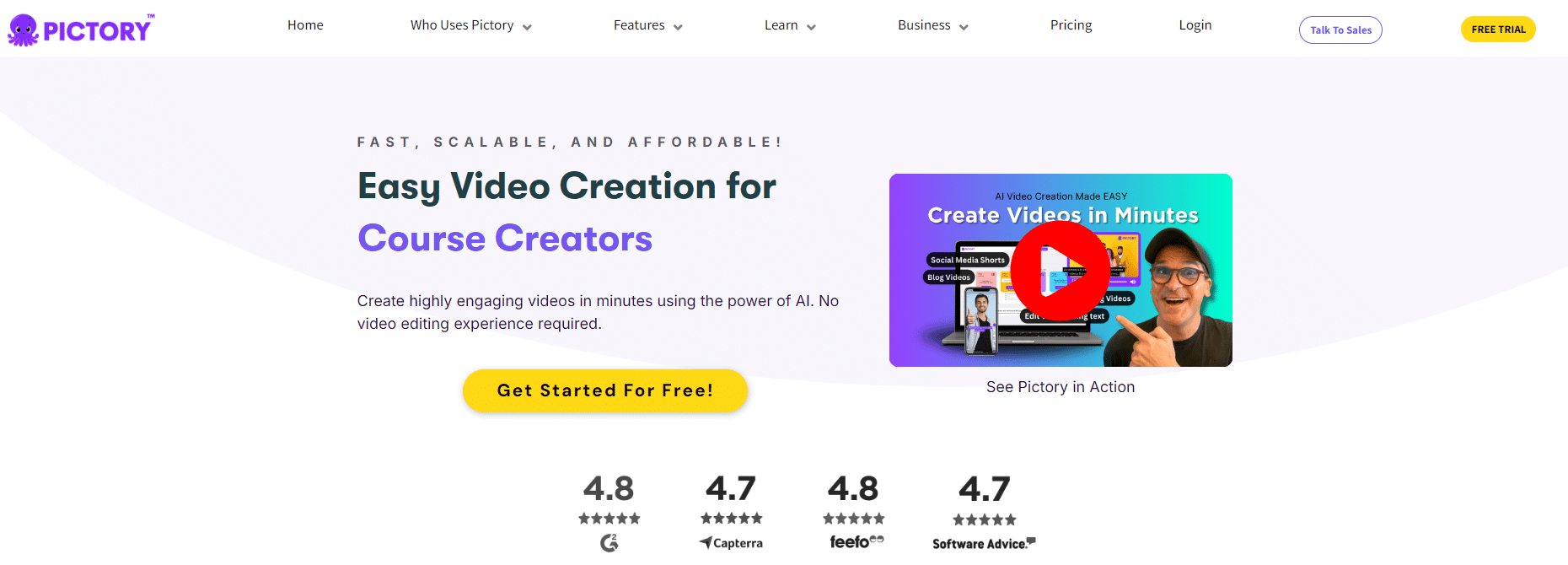
Do you want to create videos but have no editing experience? That’s where Pictory comes in.
You can leverage the power of video with written and video content that the platform’s AI will turn into short, shareable clips with:
- AI voices.
- Royalty-free music.
You can turn scripts or blog posts into videos in minutes and find matching footage.
Add in your video SEO , and you’ll have videos ranking for your most valuable keywords.
7. Canva

Canva remains a strong photo and video creation tool, but it has been beefed up with AI capabilities in the last year.
You and your team can collaborate together within Canva while using AI tools to:
- Generate copy with Magic Write.
- Transform photos with Magic Edit.
- Create on-brand templates.
You can do a lot with Canva, but you can now customize your graphics with AI tools, brainstorm ideas and so much more.
If you need to edit a photo, change colors or remove a person from the background, you can do so with the help of AI.
8. Jasper
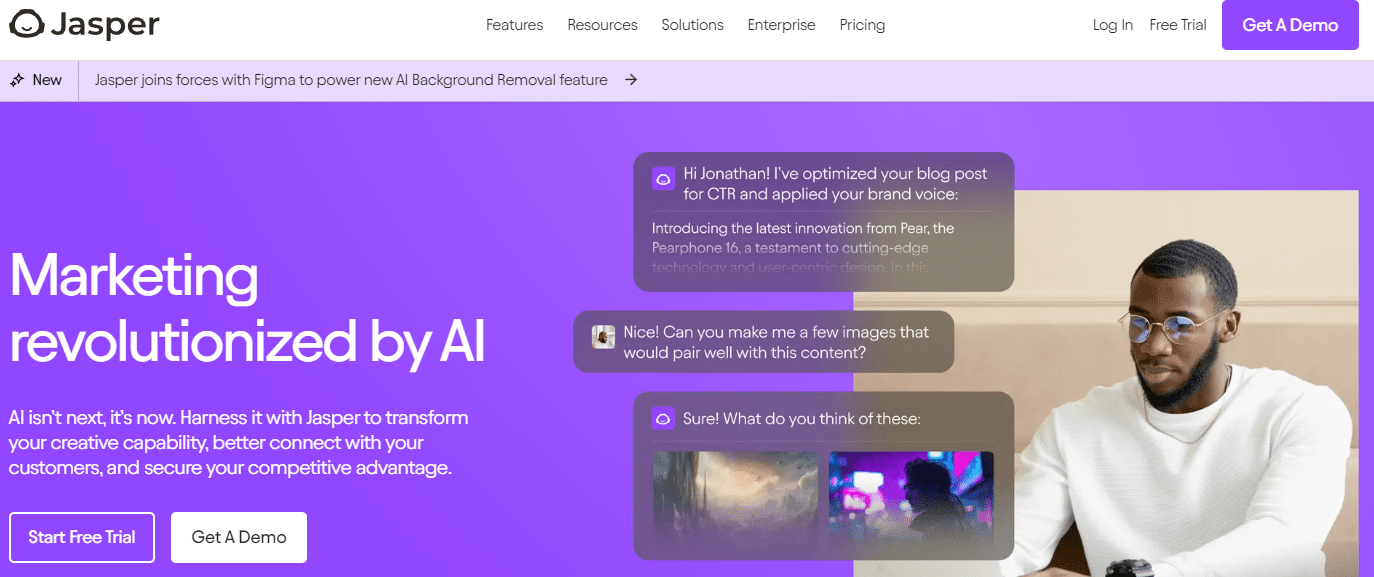
Jasper is another AI tool for brands and claims to be an “AI copilot.”
For brands creating a lot of content, the platform allows you to create extensive information on brand voice, style guides and knowledge bases.
You can use the platform to:
- Write and edit copy.
- Optimize copy.
- Repurpose content.
- Create captions for social media.
- Help with email marketing.
With the help of Jasper, you can keep your brand unique without losing your voice.
9. Diib
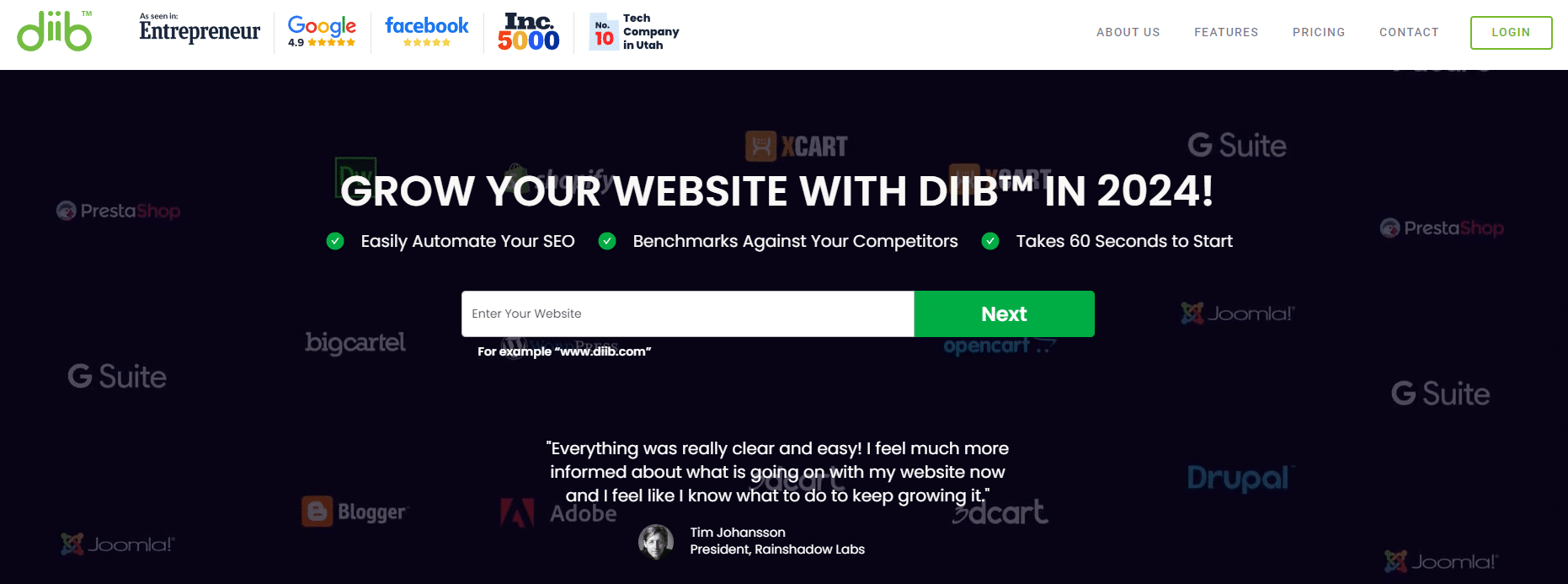
Diib is designed to automate your SEO with an answer engine that dives deep into your analytic data to identify benchmarks that you can start using to grow online brands.
A few of the ways that Diib will help you optimize your site is with:
- Identifying key issues.
- Implementing improvements.
- Monitoring rankings and opportunities.
- So much more.
For smaller SEO projects, Diib is very useful and provides a wealth of monitoring options that help you get control of a site’s SEO.
10. Semrush
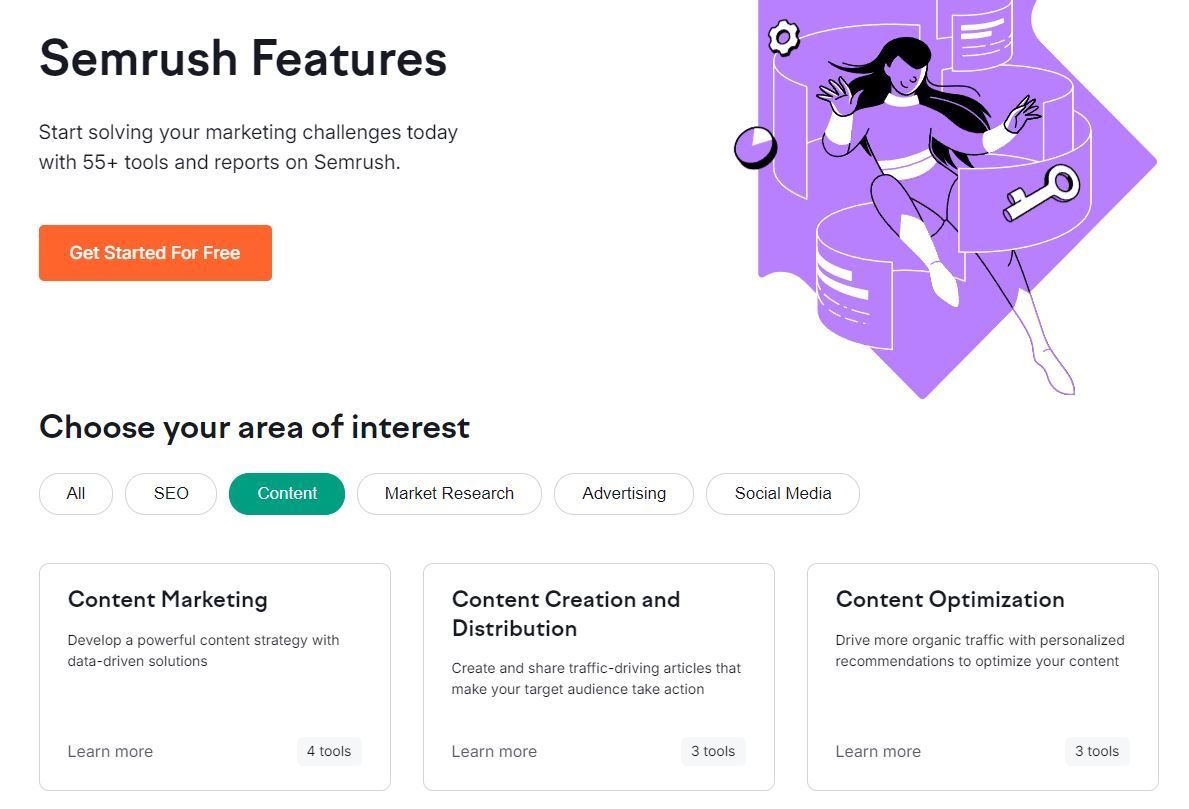
Semrush offers a suite of tools for SEOs, including ContentShake AI. This AI-powered tool is designed to create SEO-friendly articles to boost organic traffic.
ContentShake AI can generate weekly content ideas and images, optimize your content and even post to your WordPress site directly.
Content ideas are based on trending topics in your industry and target location. You can even generate entire blog posts that incorporate the best SEO practices and are written in your unique tone and style.
ContentShake AI says it can help you create content 12x faster and even generate compelling posts for any social media platform.
11. WordLift
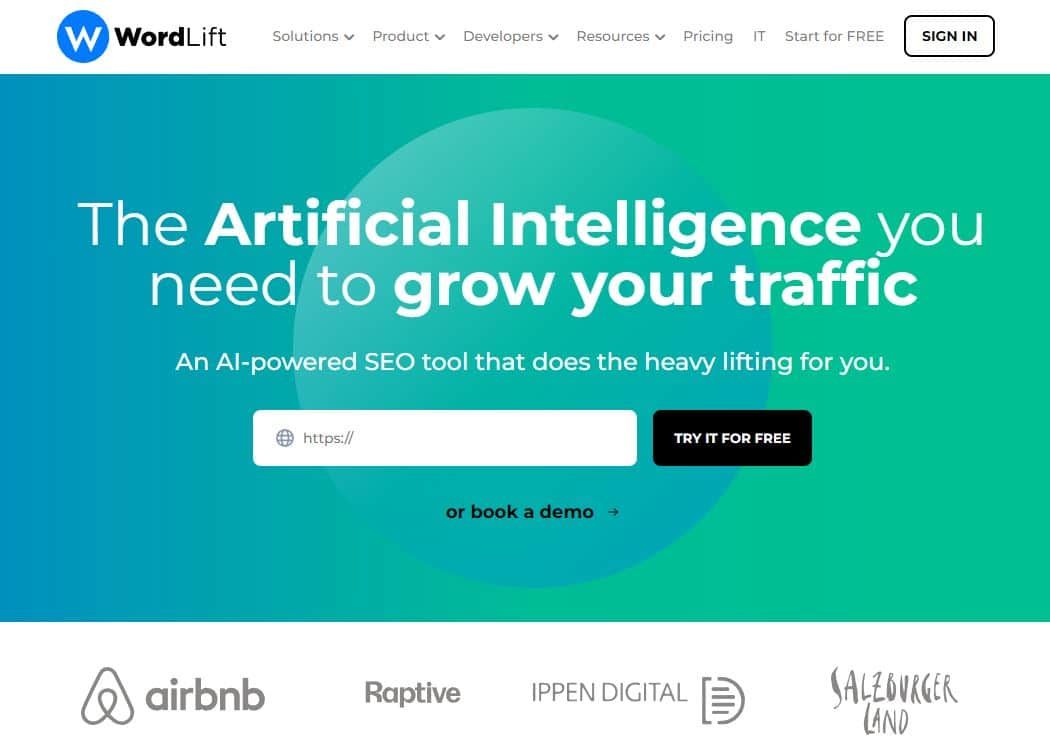
WordLift markets itself as an AI-powered tool that “does the heavy lifting for you.”
It can add structured data to your site automatically and help you build knowledge graphs that help search engines understand the structure of our content.
But WordLift can also go beyond these technical tasks and help you create more engaging and informative content, thanks to the power of generative AI.
Semantic analytics further help you understand search intent and provide usable data that you can use to optimize your content.
WordLift offers solutions for ecommerce brands and enterprises alike.
12. ChatGPT
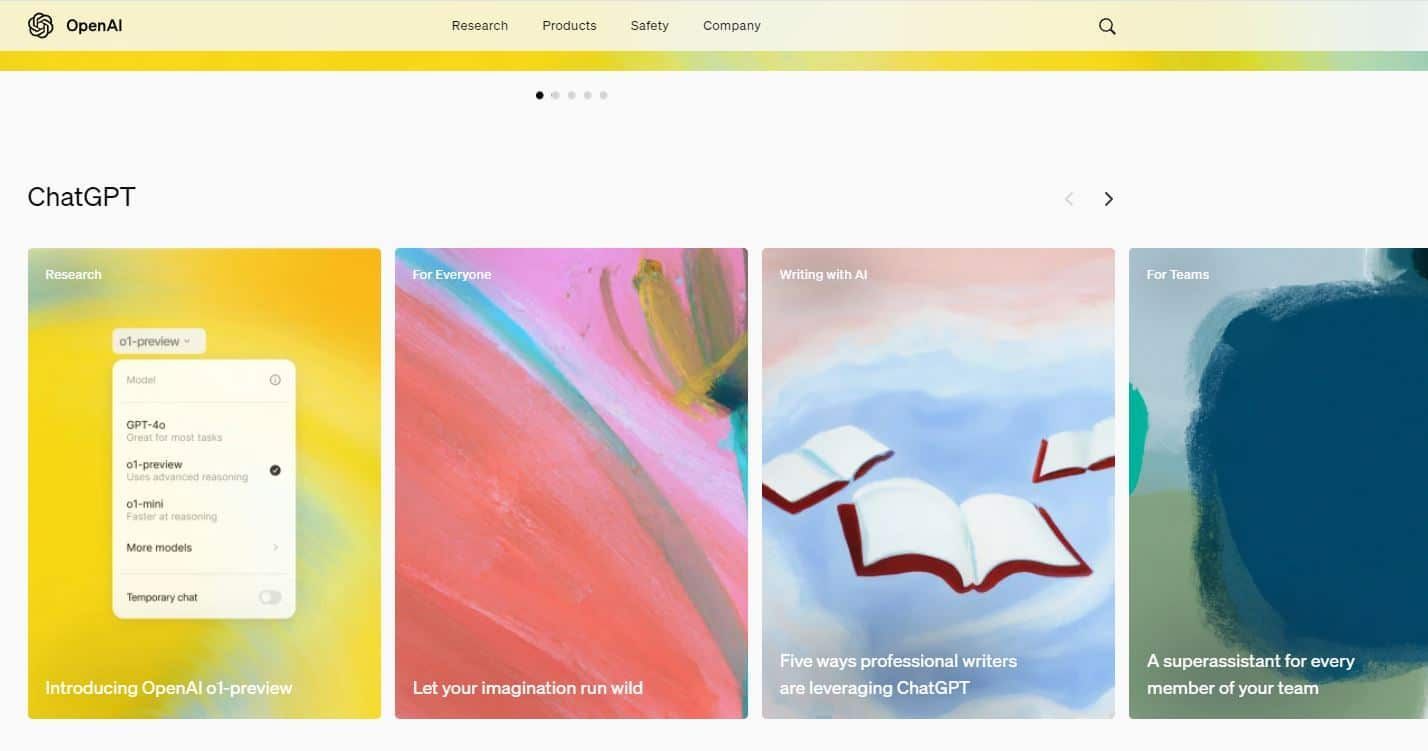
When you hear the words “artificial intelligence,” what’s the first thing that comes to mind? ChatGPT.
Type in a question and ChatGPT will give you the answer. Ask it for ideas or even to write a caption for your Instagram post and ChatGPT will deliver.
ChatGPT ushered in a wave of generative AI tools, but it remains the top tool of choice for many marketers. Today, it has more than 200 million weekly active users.
It’s not without its flaws – fact-checking is a must when using this tool – but for many marketers, it serves as a helpful tool to generate ideas, outlines, content inspiration, recommend on-page SEO changes and more.
Dig deeper: ChatGPT prompts for SEO: What you need to know
13. Topically
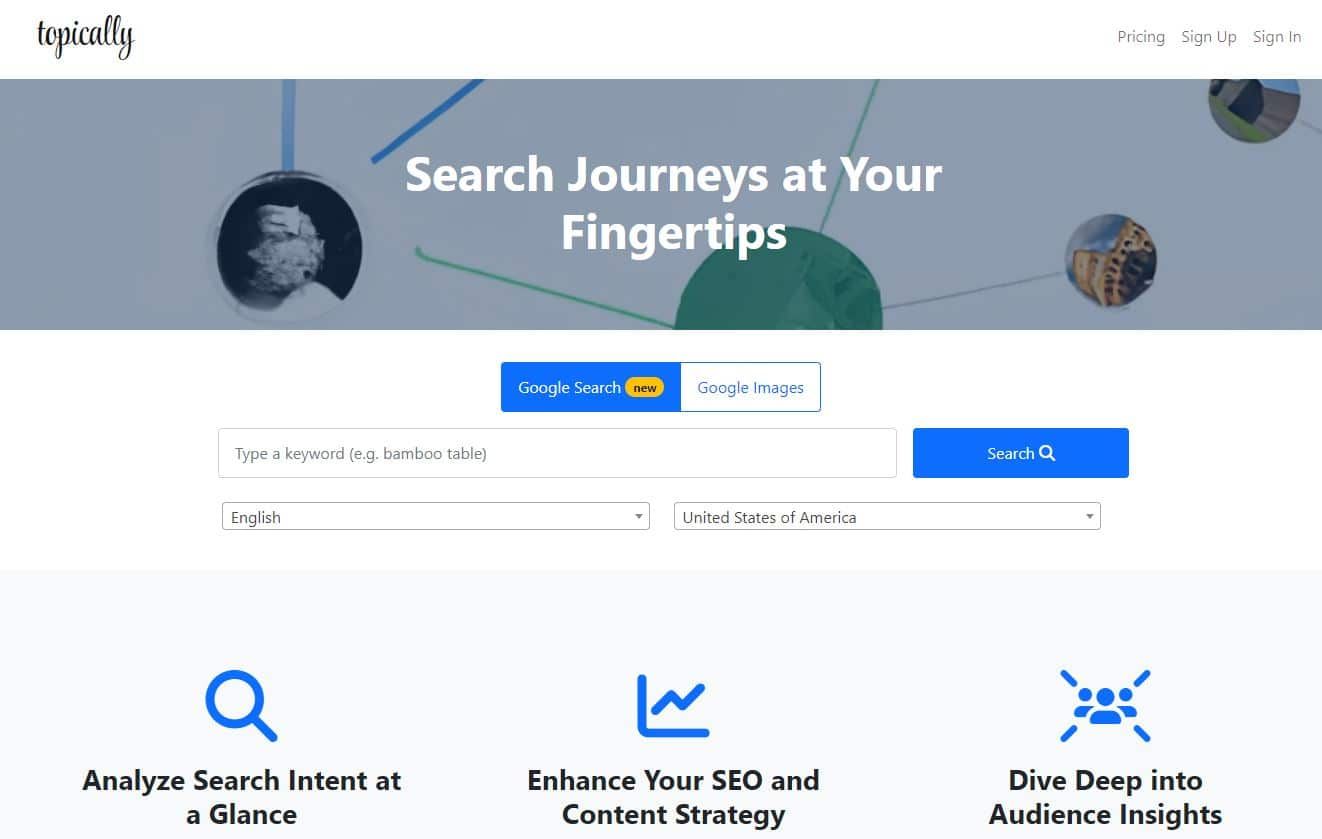
What’s the key to creating effective copy and content? Knowing your audience. What are their pain points? What is their intent?
Topically harnesses the power of artificial intelligence to help you analyze search intent and better understand your audience with the tap of a button.
Tools like topical maps, image labels and search modifiers provide valuable insights into your audience’s behavior. You can leverage these insights to improve your content strategy and SEO campaign.
The best part? You can get started for free to see if this tool will enhance your marketing strategy.
14. People Asked
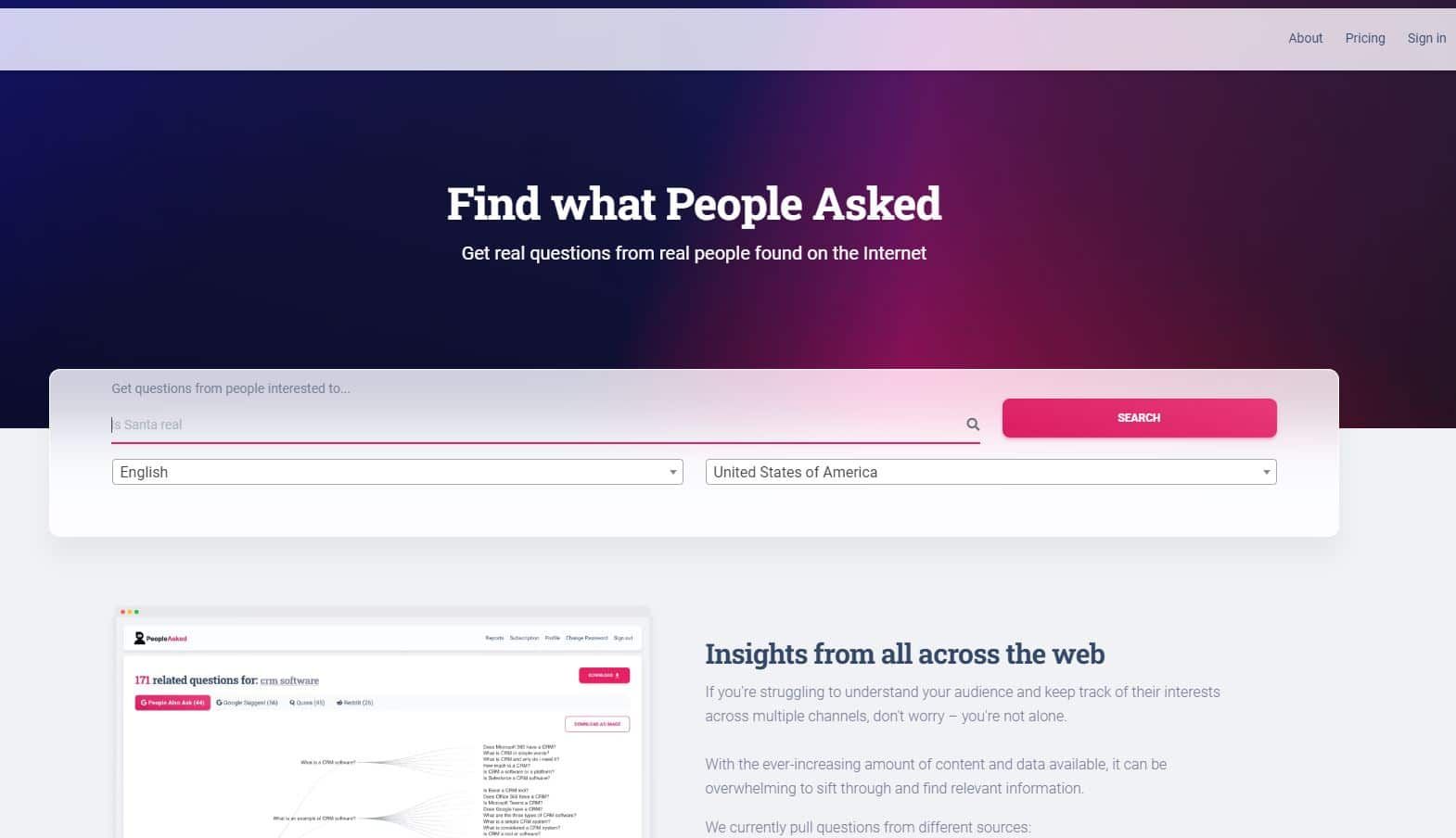
What is the goal of every search engine? To answer people’s questions. If your site can provide these answers, it’s more likely to rank higher in the search results.
The question is: how do you figure out what people are asking? Keyword research can only take you so far and even with tools, the process can be tedious.
People Asked is an AI-powered tool that grabs insights and questions from across the web. Just type in a topic or keyword and it will generate relevant questions asked by real people.
You can use this data to connect with your audience, solve their problems and improve your content creation.
15. FormStory
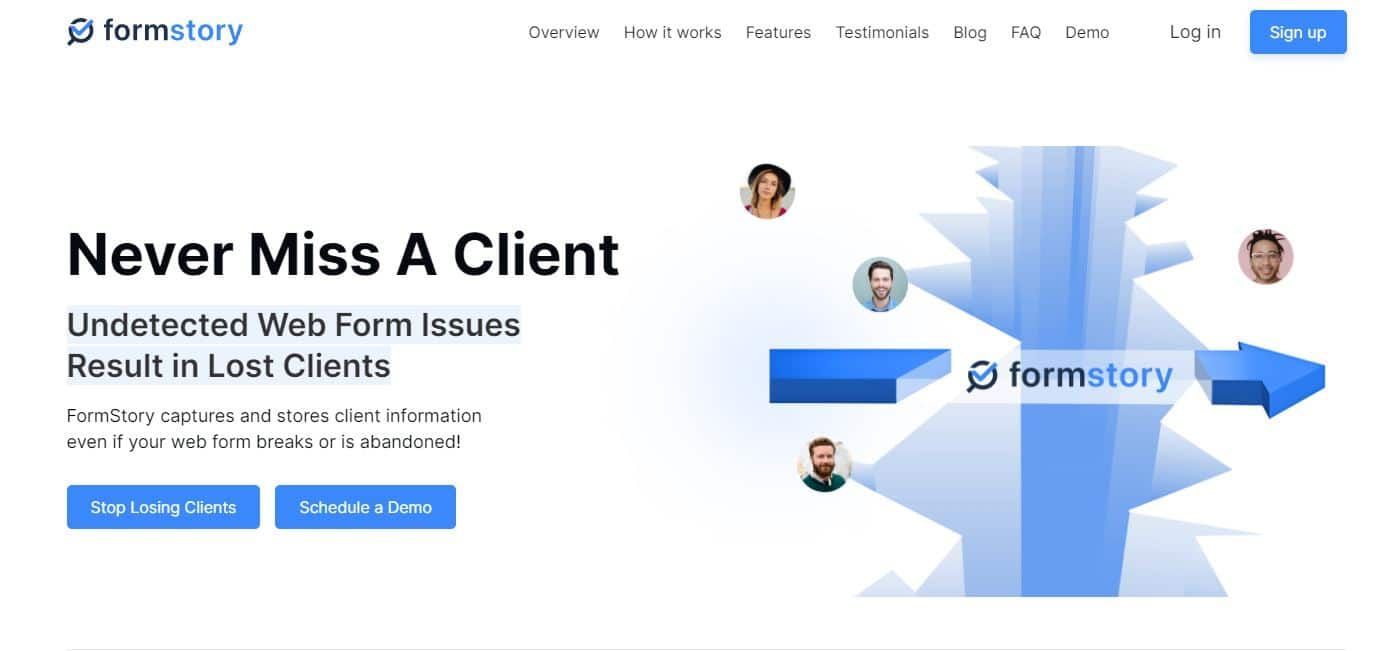
Web form issues can lead to lost clients, revenue and reputation. FormStory helps you avoid this fate by capturing and storing form data, even if they are abandoned or broken.
This AI-powered tool will monitor your forms and notify you each time they fail to capture submissions. It even stores all of the data in any form fields the visitor filled in before the form was abandoned.
With FormStory, you can view form analytics and performance in real time and use captured data to improve site conversions and performance.
Final thoughts
There’s no shortage of AI tools for SEO, and the right combination of solutions can help streamline your workflows and processes.
These 15 tools are a great place to start. Take them for a test drive to see if they work for you and can easily integrate into your tech stack.
